Content
Plagiarius 2024
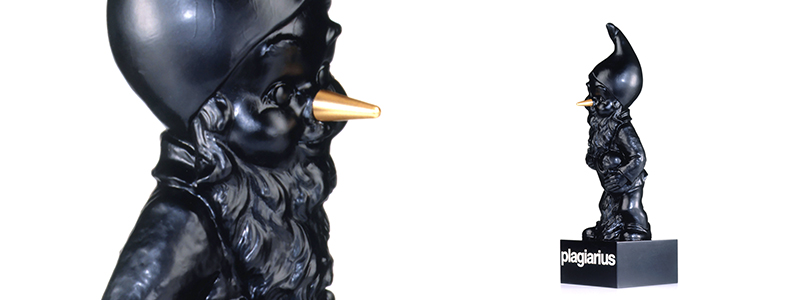
Massive threat to the economy, industry and private households
Downward spiral: product and brand piracy weakens legal trade and innovative strength
According to the European Commission and the European Union Intellectual Property Office (EUIPO), around 86 million counterfeit goods with an estimated value of over 2 billion euros were confiscated at the EU's external borders and in the EU's internal market in 2022 alone. And these are only the demonstrable seizures by customs and police authorities, i.e. the tip of the iceberg. The EUIPO and OECD put the international trade in counterfeit goods at an alarming 412 billion euros in 2019, which corresponds to 2.5% of global trade.
International counterfeiters (gangs) produce their sometimes dangerously inferior imitations with a great deal of criminal energy and under ethically questionable conditions, with no regard for human rights or safety and environmental standards. Plagiarism and counterfeiting weaken the investment and innovative strength of research-based companies, they destroy jobs and slow down economic growth.
Cheap imitations: short service life, dangerous electronics, poor functionality
Counterfeiters are more unabashed than ever in copying products that are already successfully established on the market. Infringing goods are available in all price and quality gradations: From dangerous cheap counterfeits to high-quality, but then also high-priced, plagiarisms. In most cases, the same appearance does not automatically mean the same quality, performance and, above all, safety. Many imitations are made from cheap materials, are poorly manufactured and have not undergone any quality or safety checks. This manifests itself in a short service life, dangerous electronics, poor functionality or very high levels of harmful substances. A "pungent chemical smell" is often mentioned by disappointed buyers and is a typical identifying and distinguishing feature. Returns are expensive or not possible with many suppliers.
Online giants from third countries flood European market with cheap items and fakes
Chinese online platforms such as Temu, Shein, DHgate and AliExpress are conquering global markets with their cheap products - including numerous infringing imitations or products that do not comply with EU product safety regulations. The manufacturers or retailers, mostly from China, often sell directly to end customers. The latter thus become importers and are liable for third-party damage. The cheap goods are aggressively advertised on all social media; young bargain hunters are enticed to make regular purchases with knock-down prices and wheel of fortune. This behavior is reinforced by so-called "dupe influencers" who recommend fake designer and luxury products to their followers in videos on Instagram, YouTube or TikTok.
There is hardly any information about the sellers. The goods are often delivered without the CE mark required for many products and without operating instructions in German. Return shipping in the event of a complaint is often excluded or is more expensive than the cheap product. (Liability) free ride for suppliers from third countries at the expense of European brick-and-mortar retailers and reputable online suppliers. The sometimes inferior products are transported across the globe and quickly end up in European waste. This is not sustainable, minimalist consumption. The EU is called upon to ensure stricter regulation and fair conditions for all.
The "main prize winners" of the "Plagiarius 2024"
The jury met on December 1 and 2, 2023 and awarded three main prizes, two newly created special prizes and four equally ranked awards.
1st prize: "DENK`ART" glass series (champagne, universal, Bordeaux and Burgundy glasses)
Original: ZALTO Glas GmbH, Gmünd, Austria
Plagiarism: Bayerische Glaswerke GmbH, Neustadt a.d. Waldnaab, Germany
In 2004, Zalto launched the "DENK'ART" glass series, which is popular with winegrowers, top gastronomy and consumers and is hand-blown in the traditional way. In 2020, Bayerische Glaswerke GmbH presented its machine-made "Definition" glass series, which it says is based on two of its own older glass series. Neither company has applied for design protection. A lawsuit is currently pending between the renowned companies. Irrespective of how the court decides with regard to possible unfair competitive behavior, the jury found that the 4 glass types of the "Definition" series look confusingly similar to the 4 most successful glass types of the Zalto series and that fair competition among respected competitors looks different. In its statement before the jury meeting, Bayerische Glaswerke GmbH explicitly refers to "freedom of imitation" and denies that there is any legal or moral wrongdoing.
2nd prize: Toy building set "LEGO Creator 10252 - VW Beetle"
Original: Volkswagen AG, Wolfsburg, Germany
Plagiarism: GDR-Trading BV, Meppel, Netherlands
The iconic VW Beetle is protected throughout the EU as a 3D trademark, i.e. the three-dimensional Beetle shape is a trademark in its own right. Naturally, Volkswagen has also protected the famous "VW in a circle" trademark worldwide. In this case, both the Beetle 3D mark and the "VW in a circle" mark are infringed. In addition to the kit for the VW Beetle, GDR-Trading also offered other fakes via its online stores in Germany, Sweden and the Netherlands. The fakes were advertised with photos of the original kits and the statement "that the finished model looks true to the original". The fakes were delivered in plastic bags wrapped in bubble wrap. GDR has signed a cease-and-desist declaration and provided information on sales figures. Some of the counterfeits cost half the price of the original licensed kits, which is reflected in the lack of stability and quality of the finished products, among other things.
3rd prize: CUBORO marble run "STANDARD 32" (educational game/learning method in schools/CUBORO championships)
Original: Cuboro AG, Bern, Switzerland
Counterfeit: Manufacturer of the "Easycool" counterfeits (sold via taobao.com): Zaozhuang Yike Electromechanical Equipment Co, Ltd, Shandong, PR China
The entire, award-winning CUBORO marble run system consists of over 100 different elements. It trains fine motor skills, strengthens spatial awareness and stimulates creativity. Invented by Matthias Etter in the 1970s, CUBORO now delights children and adults in more than 30 countries, including Asia. The original cubes are made in a family carpentry workshop from certified "Swiss wood" from sustainably managed beech forests. All elements are pure natural products, chemically untreated. Concept theft: Easycool copies almost all CUBORO products, in some cases including packaging, photos, functional graphics, awards and designations of origin. They advertise the counterfeits as "compatible with CUBORO". Since 2023, Easycool has been trying to poach Cuboro's European dealers directly. The counterfeits cost 50 percent of the original.
In addition, the jury awarded four equal "awards" and two "special prizes":
Special price "Online marketplace for hyenas": Cutlery set "KLIKK POCKET" for on the go (3 pieces)
Original: koziol "ideas for friends GmbH, Erbach, Germany
Counterfeits: (1) TEMU.com, Whaleco Technology Limited, Ireland
(2) ALIBABA.com Singapore E-Commerce Private Limited, Singapore
(3) FRUUGO.com Limited, Great Britain
(Only) the Koziol original is robust, 100 percent recyclable and made in Germany. After SHEIN (Plagiarius 2022), countless dealers of cheap 1:1 copies of the award-winning Koziol reusable cutlery are now also allowed to set up shop on TEMU, ALIBABA and FRUUGO and offer their inferior counterfeits at knock-down prices. Although the offers are removed after reference is made to the EU-wide design protection for the cutlery, they are not actively and automatically prevented, despite knowledge of the property rights. It would be easy: all retailers use the same advertising texts and photos. It's like "Groundhog Day" - a recurring annoyance. The major platform operators generously let Chinese suppliers get away with violations of general terms and conditions and fair trade, while neglecting their responsibility towards Western manufacturers and retailers. Theoretical promises and practice are still far apart.
Special prize "Kreativ-Schmarotzer": T-shirt "PUMA" logo
Original: PUMA SE, Herzogenaurach, Germany
Plagiarism: Streetwall 68 GmbH, Wülfrath, Germany
The supposedly humorous alteration, which at first glance appears creative and evokes a brief smile, represents a serious infringement of the word/figurative mark for renowned brand manufacturers such as Puma. PUMA" becomes "PUMBA" - the leaping wild cat becomes the leaping warthog Pumbaa from Walt Disney's "The Lion King". In fact, this parody copies all the key structural features of the Puma logo: the same font, the leaping animal. Due to the high recognition value of the well-known brand, the parody attracts attention in a way that another Pumba depiction could not. The good reputation of the well-known trademark is being unfairly exploited. The Hamburg Regional Court also found this and prohibited Streetwall from offering T-shirts in the EU with Pumba lettering and the outline of a warthog in a stretched jump..
Award: "PLANOPOLY MOTION 4.0 1926" sofa
Original: himolla Polstermöbel GmbH, Taufkirchen (Vils), Germany
Plagiarism: Upholstered furniture manufacturer with headquarters and production in Poland
The "Model 1926" sofa from himolla, which is protected by a registered design, was launched in 2018 and quickly became a bestseller. The special features are the (then new) electrically height-adjustable headrests and the new design language with a pointed cushion look. In 2021, several imitations went on sale - this copy even imitated the curved metal feet. In its ruling against the Polish company, the Cologne Regional Court confirmed that the overall impression of both sofas was identical despite minimal differences. The imitator had to pay damages and remove remaining stock from the market. In principle, the density of upholstered furniture is an important indicator of the quality of the foam in the seat cushions and backrests. If the density is too low, this can have a negative impact on seating comfort, dimensional stability and product life.
Award: Garlic rocker "Knobi King"
Original: Leifheit AG, Nassau, Germany
Counterfeit: Distribution: HS Plus d.o.o., Trgovina in Storitve, Trzin, Slovenia
Manufacturer: Spatz Global Limited, Hong Kong, PR China
Leifheit has protected its successful Knobi King garlic rocker with a registered design right valid throughout the EU (so-called Community design). The practical stainless steel kitchen aid sits comfortably in the hand thanks to its ergonomic design. Thanks to the punched perforated plate, garlic cloves are not crushed but cut into very small cubes. Numerous imitators from all over the world copy the popular design 1:1. The imitations are usually sold at a fraction of the original price and in correspondingly inferior quality, sometimes with a risk of infringement. To protect its brand and to protect consumers, Leifheit consistently warns imitators and has the infringing (online) offers deleted. Imitation is therefore not worthwhile.
Award: "DSG" gear knob for VW Golf 6
Original: Volkswagen AG, Wolfsburg, Germany
Plagiarism: Sale: Amazon Export Sales LLC, Seattle, U.S.A.
Distribution: via AMAZON.de (Operator: Amazon Europe Core S.à.r.l. Luxembourg)
As a platform operator, Amazon earns money from every sale - regardless of whether it is an original product or a counterfeit. At the same time, Amazon itself acts as a seller of products - including counterfeits: "DSG" is a registered trademark of VW for the gear knob of the VW Golf 6. Amazon US offers the counterfeit from China at a third of the original price on Amazon.de. Unprofessional: Amazon US has shown no reaction whatsoever to a warning letter from VW. And the technical operator of the Amazon.de website also denies any responsibility. Inadequate: Although VW has already deleted numerous counterfeits via the "Amazon Brand Registry", DSG counterfeits keep popping up, i.e. Amazon does not take any technical precautions to ensure that they are blocked or deleted as soon as they are uploaded.
Award: Bimetal thermomanometer (pressure and temperature measurement)
Original: WIKA Alexander Wiegand SE & Co. KG, Klingenberg, Germany
Counterfeit: Sales: via EBAY.de - eBay GmbH, Kleinmachnow, Germany
Seller according to eBay: Company "shenzhenshihongqiaoshanfuzhuangyouxiangongsi" (user name oi98-53 - "Top rated - one of the best sellers on eBay")
Shipping: ShunShun GmbH, Linkenheim, Germany
WIKA vs. WAYI - VIKA - VIKAI. The "WIKA" brand of the internationally renowned specialist for measuring technology is often counterfeited. It is always surrounded by the distinctive, extra brand-protected blue frame open at the top right - here mirror-inverted at WAYI. In Asia, WIKA takes consistent and successful action against any infringements of its (word) trademarks. In Germany, eBay demands a court ruling and only provides the contact details provided by the seller. Problem: The address of the Chinese seller consists of an unidentifiable one-word string of letters and the German sender cannot be contacted either. In its terms and conditions, eBay requires up-to-date, correct contact information. The practice looks different - and so does fair competition for European manufacturers and retailers.
How to protect yourself from product piracy
Do not support criminal networks and therefore pay more attention to the authenticity of the goods on offer when buying products, especially online.
You will find helpful tips under the following links:
-
 Aktion Plagiarius e.V.
Aktion Plagiarius e.V. -
 How to identify fakes and other IPR infringing goods
How to identify fakes and other IPR infringing goods -
 Counterfeit products on vacation and online: Recognizing fake brands
Counterfeit products on vacation and online: Recognizing fake brands -
 German Anti-Counterfeiting Association
German Anti-Counterfeiting Association
Source and pictures: Aktion Plagiarius e.V. (and Fotos Sofa: himolla Polstermöbel GmbH und Foto Puma-T-shirt: PUMA SE)
Last updated: 19 May 2025

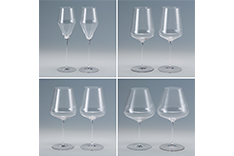
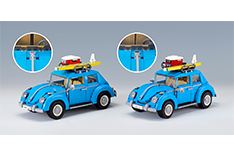
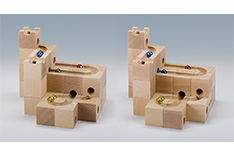
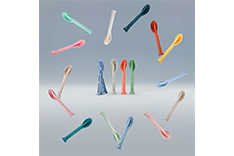
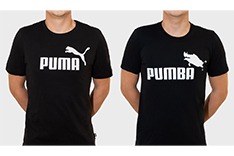
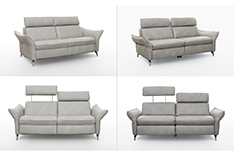
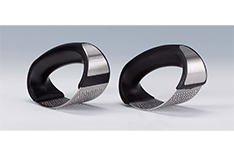
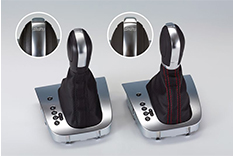
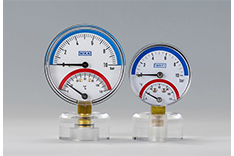
Not only protecting innovations
Social Media